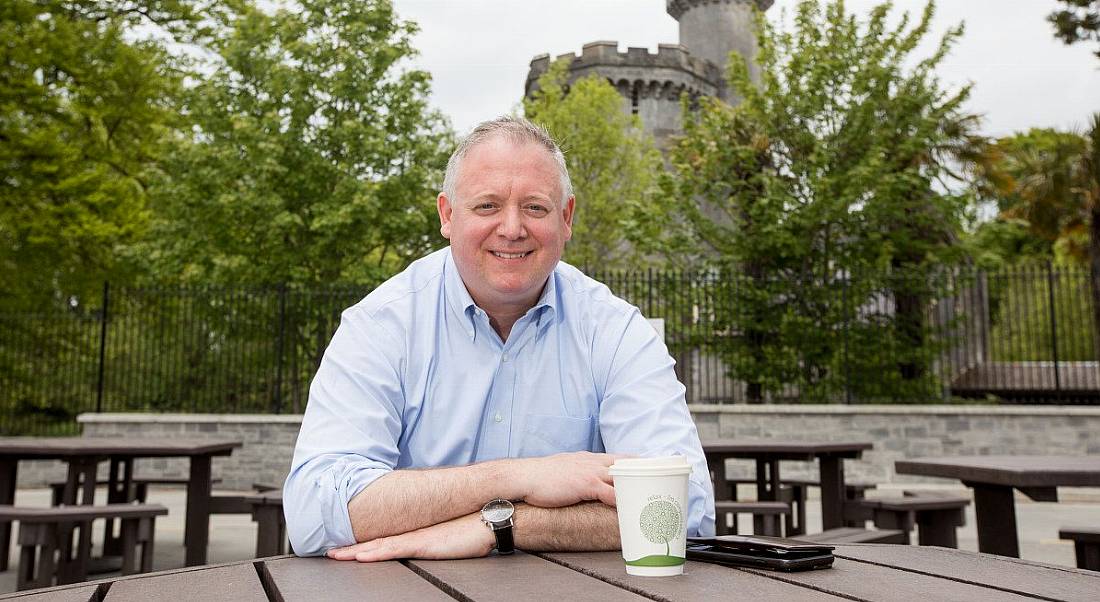Regeneron’s unique company culture is its chief weapon in fighting off competition for high-skilled talent in Ireland’s mid-west.
“Gone are the days of the good pensionable job. Now it’s about working for a company that you actually enjoy working for,” said Niall O’Leary, vice-president and site head of Regeneron in Limerick.
I called O’Leary to catch up on developments at the Limerick site since we last spoke and, while he claimed to be “the wrong person to ask” about millennials (“I can’t even pronounce the word”), his own values and attitude to work struck me as in tune with those he’s working hard to recruit and retain.
All reports point to millennials’ desire to find work with purpose, a job that’s both enjoyable and impactful. And O’Leary has evidently achieved that goal for himself. “Everybody dies. So, I think the time we’re on the planet here, we might as well do some good,” he said.
“We want to be the best. We think we’re the best but we need to continue to challenge ourselves every day.”
The drugmaker with a difference, Regeneron is indeed an outlier in its industry. Recent financial earnings beat analysts’ expectations, but the company’s behaviour tends to buck trends. O’Leary explained that CEO Leonard Schleifer and chief scientific officer George Yancopoulos are more long-term thinkers under the premise: “Do well by doing good.”
“We spend an astronomical amount of money – which, maybe the analysts don’t like – on research,” said O’Leary. “They would prefer that we give that back in dividends or stock buyback, and we put it into research.”
This research goes towards next-generation drugs such as Eylea, the company’s flagship product, and cholesterol drug Praluent. Later this year, Regeneron’s output is set to include a “breakthrough” PD-1 inhibitor, targeting patients that have a specific skin cancer.
‘We’re an American biotech company getting drugs on the market and we have employees out growing cabbage and carrots, and loving it’
– NIALL O’LEARY
Ireland is a huge part of Regeneron’s long-term plans and new pipeline. The Limerick site now has FDA approval and can produce and ship to the US. Late last year, total investment in the Raheen site reached $750m, with the addition of 300 roles.
“We’re actually building and expanding even though the existing site isn’t even full yet, which shows you the level of confidence we’re putting into our pipeline,” said O’Leary.
Quality of life
The Limerick base is midway through its expansion project, but growth requires employees as well as square footage, and attracting them has driven progressive thinking in the workplace.
“We’re looking at things a little bit differently,” said O’Leary, and he points to employee feedback and internal surveys that have helped develop the unique company culture.
The perks of the hard work include an on-site gym and a cafeteria centred on healthy nutrition, as well as a number of quality-of-life initiatives targeting employee health and wellbeing. It has seen visits from Derval O’Rourke and Niall Breslin to promote both the physical and mental side of health, and O’Leary was particularly proud to tell me the team were fresh from conquering An Garda Síochána in the Great Limerick Run.
Along with the pilates classes and plans for lunchtime walking paths, there’s also a ‘bee motel’ and a greenhouse for employees to get back to nature. “We’re an American biotech company getting drugs on the market and we have employees out growing cabbage and carrots, and loving it.”
Employees can also give back to the community through the company’s partnership with Limerick Learning Hub, of which O’Leary is “particularly proud”.
‘There’s a hell of a lot of competition for these new employees. It’s really different to when I was coming up the ladder. The focus is on mental health, nutrition, the environment and your general quality of life’
– NIALL O’LEARY
As well as work-life balance, the company is working on its gender balance, with O’Leary citing 43pc women making up the Limerick workforce – “a curiosity” in the industry. “In the senior team, the ratio is not 50:50 yet, but we’re certainly aware of it and we’re moving towards it,” he assured.
So far, gender balance at the company is being achieved by actively seeking women with leadership potential and encouraging them to progress up the ladder through prompts, mentoring and support.
“Obviously, and this is very important to me, we will not promote a woman just for being a woman – because I believe that’s an insult to all women who’ve gotten to where they are today in management structures – but we certainly create opportunities for them to do that. That’s one of the top things on my list to do and it’s paying off,” said O’Leary.
Noting “exceptionally talented” women sci-tech leaders, he added: “We’ve a couple of Meg Whitmans in here.”
Image: Regeneron
Infrastructure for Ireland Inc
The purpose of all this is clear to O’Leary. “It’s all about getting the best employees,” he said. Right now, his focus is on finding the right employees and retaining them.
“There’s a hell of a lot of competition for these new employees. All these millennials and what have you, as well as the existing old fogies like myself. It’s really different to when I was coming up along the ladder. The focus is on mental health, nutrition, the environment and your general quality of life. Flexitime and that sort of stuff. We’ve adapted to that and I think we’re at the forefront.”
And it seems to be working, according to an estimated “less than 5pc” attrition rate.
“As regards competition, I’m pretty sure there are some companies out there who don’t employ the same sort of quality-of-life initiatives or long-term compensation programmes we’ve put in place – or, frankly, the ability to grow within an organisation. Well, their people are probably leaving and probably will continue to leave. That’s just the nature of the beast.”
Of course, Regeneron suffers its own “regrettable losses”, sometimes because of fundamental issues outside of the employer’s control, such as logistical challenges. That’s why leaders such as O’Leary are calling for improvements to transport and infrastructure. He’d happily lose talent to the “premier biotechs in Cork” if there was a free flow back to Limerick.
Like most in the region, he wants the infrastructure to make the mid-west a counterbalance to Dublin. “Free flow of traffic and commuter times [that are] very easy between Galway, Limerick and Cork and Waterford – I think that’s your next goal for Ireland Inc,” he said.
Unfortunately, the mid-west has been calling for projects such as this for a long time. “I think this road to Cork is going to come. I’ll probably be retired,” O’Leary said with what I imagine was a rueful smile.
Ideally, he’d like to see a looped motorway linking Limerick to Cork and Waterford, and back to Dublin, plus the introduction of high-speed trains. “[Other] countries are doing this. If they can do it, certainly we can,” he said.
While he acknowledged other issues needing State spending, such as healthcare, O’Leary was clear that infrastructure and drawing in foreign direct investment “is critical to the future of Ireland, especially given that the US tax rate has dropped”.
“In the old days it was a certainty, it was a no-brainer to come to Ireland. Now it’s no longer a no-brainer, but it’s certainly a very good deal. I think we’re moving away from the reliance on a lower tax regime. The attraction now is our workforce.”




